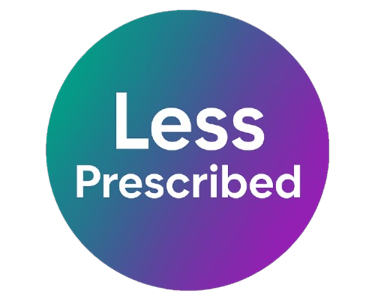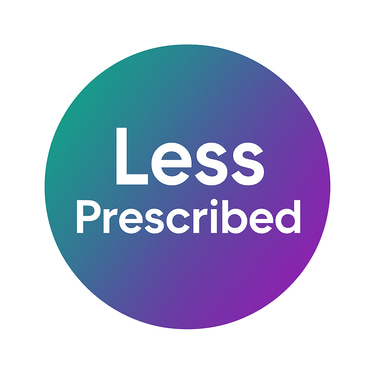Restoring Trust Between Doctors and Patients: Finding Balance in Pain Care
Over the past decade, pain management has become one of the most misunderstood areas of modern medicine. As the U.S. continues to battle the opioid epidemic, a quieter crisis has unfolded: the erosion of trust between doctors and patients. What once was a relationship built on care and communication has, for many, turned into one defined by fear, doubt, and compliance. But as new research and policy discussions emerge, there’s growing agreement that it doesn’t have to be this way.
LessPrescribed Editorial Team
11/8/20252 min read


The Fear Factor: How We Got Here
According to a 2024 American Medical Association (AMA) policy brief, more than 60% of physicians treating chronic pain say they’ve changed their prescribing habits “primarily due to regulatory fear.”
Doctors report receiving warnings, pharmacy refusals, and even DEA audits for patients who have been stable on long-term therapies for years.
Meanwhile, patients report feeling dismissed, stigmatized, or even abandoned — a sentiment that’s now backed by data.
A 2023 University of Michigan study found that 1 in 4 chronic pain patients said their doctor no longer trusts their pain reports.
For many, this loss of trust has a direct effect on mental health, with increased rates of anxiety and depression linked to untreated or undertreated pain.
The Human Cost of Mistrust
Pain management is as much about empathy as it is about science.
When trust breaks down, the consequences are personal and profound.
A national survey from Pain News Network found that over 70% of chronic pain patients felt “judged or disbelieved” by healthcare providers in the past year.
The same study revealed that nearly 40% had changed doctors multiple times in search of compassionate care.
“I don’t want more medication,” one respondent wrote.
“I just want my doctor to believe that my pain is real.”
This erosion of trust has created a feedback loop — as patients become more desperate, doctors become more cautious, and both sides feel less safe to speak openly.
Signs of Progress
The good news: change is beginning.
In 2022, the Centers for Disease Control and Prevention (CDC) revised its opioid prescribing guidelines, emphasizing “clinical judgment, individualized care, and compassion.”
The new approach moves away from rigid dosage limits and encourages shared decision-making between patients and clinicians.
Some medical boards have followed suit, developing “safe harbor” policies — protecting physicians who act in good faith for legitimate pain care.
At the same time, organizations like the American Chronic Pain Association (ACPA) and U.S. Pain Foundation are training both patients and healthcare providers to communicate better, bridging the emotional gap that regulation alone cannot fix.
Rebuilding Trust — One Conversation at a Time
Healing this divide starts small — one patient, one doctor, one honest talk at a time.
Here’s what experts suggest for both sides:
For Doctors:
Listen fully before responding — validation can be as healing as treatment.
Document decisions thoroughly, but don’t let paperwork replace empathy.
Advocate for your patients when systems create barriers to care.
For Patients:
Be open about your history and expectations.
Bring documentation or pain diaries to help guide conversations.
Remember: doctors are often under pressure too — meet fear with facts, not frustration.
A New Chapter for Pain Care
The goal isn’t to return to the past — it’s to move forward with balance.
Pain care can be both responsible and compassionate, safe and human.
Every policy, guideline, or prescription ultimately comes down to one interaction: a person in pain and a doctor trying to help.
When trust returns to that moment, progress begins.
At LessPrescribed, we believe the future of healthcare starts with listening — not fear.
This website sheds light on their experiences, the ethical dilemmas faced by healthcare providers, and the policies driving these decisions.
Our goal is to foster understanding, balance safety with compassion, and give a voice to those affected by
the unintended consequences of reduced opioid prescribing.
Contact Info.
quick links
© Copyright 2025 Less Prescribed. All rights reserved. Privacy Policy


+1-786-218-3490
United States of America
